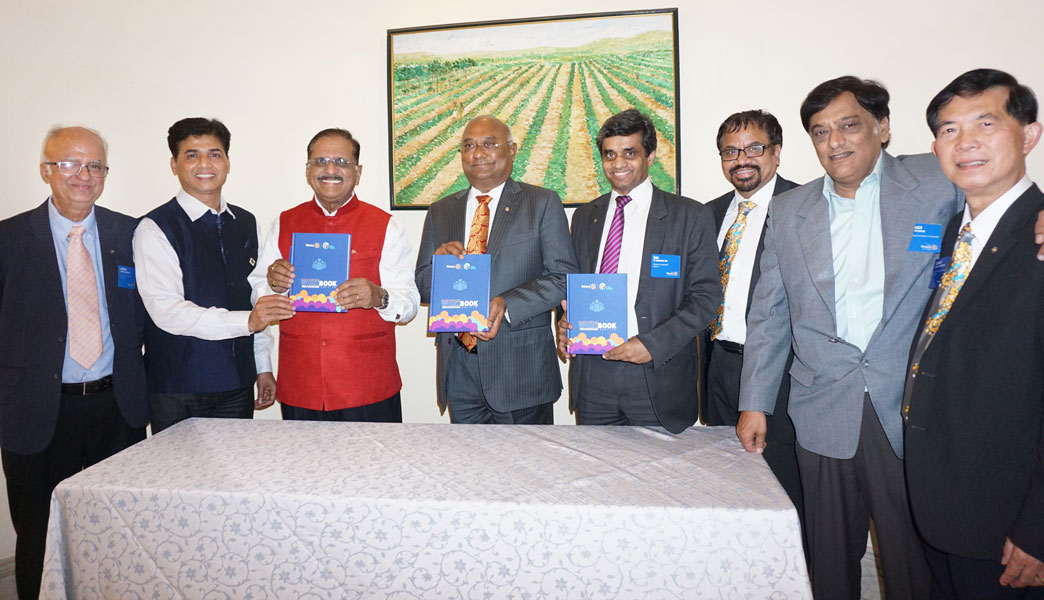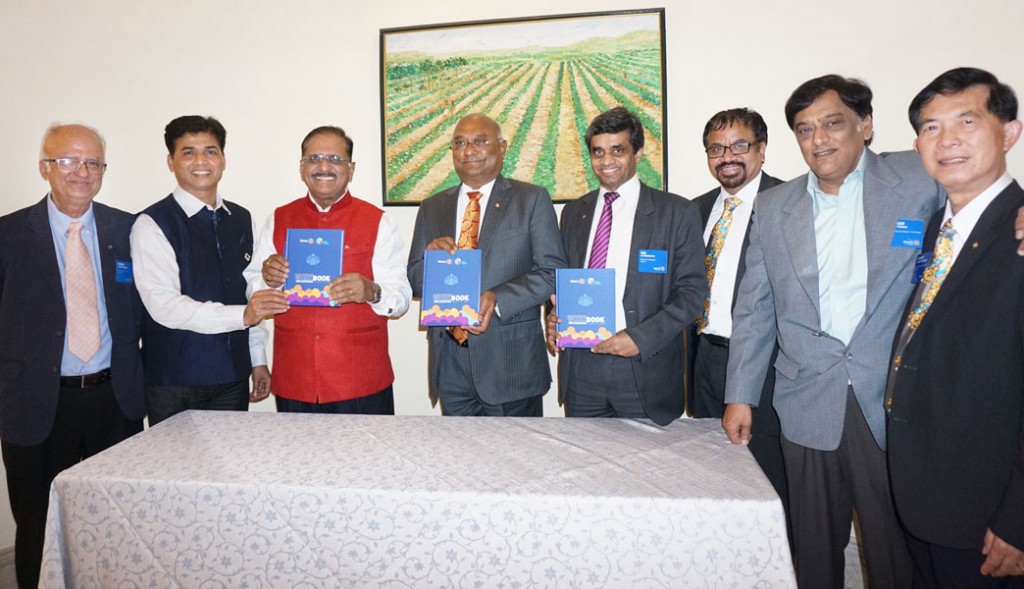Let us shift the focus to quality from quantity in the coming year. We are respected for our membership. Let’s also be respected as good quality Rotarians, good leaders to take the organisation to greater heights. Let’s move ahead and strengthen the clubs to sustain the growth we have achieved over the last five years.”

With these motivational words, RIDE C Basker kickstarted the Regional Leadership meet at Chennai. It was a participative, brainstorming workshop for the seven regional leaders of Zones 4, 5, 6A and 6B — RPICs Rajadurai G Michael and Chairat Prasertlum of Thailand (Zone 6B), RCs H Rajendra Rai and Ashok Gupta, EMGAs Ashok Panjwani and K P Nagesh and RRFC Avinash Potdar. A renewed thrust on inducting quality Rotarians and more women members, and better engagement of Rotaractors and Interactors set the tone of the meet.
Basker urged the regional leaders to improve rapport with their deputies as their recommendations will be vital for moving to the next level. “Unless they perform, you won’t be able to bring good results,” he said.
The emphasis will be on strengthening clubs through membership, by making existing clubs stronger and weak clubs adding more members or merging with stronger clubs. District Assemblies have to be training programmes for incoming governors. “Everyone wants to teach the governors-elect. The RCs, RPICS and RRFCs, or their assistants, mandatorily have to be the resource persons to address the respective sessions on membership, public image, grant management and contribution to TRF,” he said.
When Rai commented that most of the regional leaders were not invited for the PETS/SETS or the district assembly, Basker said, “Some DGEs call people of their own choices and in some districts, the training lasts for just 30–45 minutes! They don’t seem to understand the significance of the training. We need to correct it in the next batch.”
Welcoming Nagesh’s suggestion of introducing fellowship groups, similar to what was done in his District 3190, Basker said two such groups — Cricket and Music — will be installed in every District, while Zone 6B can have music and golf fellowships as cricket is not popular there. A mega cricket tournament, the Rotary Premier League, on the lines of the IPL, will be conducted at the end of the year at an all-India level. Players can be auctioned just as in IPL, and funds raised could go for community projects.
He urged the governors to distribute the translated copies of the Presidents’ handbook to the incoming presidents as it’ll be useful for them in their regional language. “While some governors don’t seem to take this seriously, the Bangla copy was a huge hit with the presidents in Bangladesh,” he said.
Local community needs
Basker urged the clubs to give priority to local community needs. “If we lose focus of the local issues, our image in the community will diminish.” Encouraging the clubs to have a bottom-to-top approach, he said the danger with the top down approach was clubs ending up doing little that was of relevance or actually required by the community. “Initially Rotary clubs were formed to focus and fulfil the community’s needs. This is the shift you have to bring in the minds of club presidents. And don’t encourage ‘projects’ just for the sake of creating records.”
Rotaract and Interact clubs
Basker urged the coordinators to rejuvenate Rotaract and Interact clubs and make them more organised. “They lack guidance. Suggest to the governors to appoint Rotaractor-turned-Rotarian as chairman at the club level; Rotaractors will connect with them better.” To encourage Rotaractors to become Rotarians, Rai suggested an increase in the lower age limit from 30 to 35, “as they will be economically sound then, which will help in their easy transition to Rotary.” A suggestion to organise a zone institute to train DRRs on the lines of Rotary’s Zone Institute was welcomed.
Underlining the lack of visible projects by Interact clubs, Basker recommended the Swachh Bharat theme and handwashing as their focus project for the coming year.
As for women in Rotary, against a global average of 21 per cent, India has only 7 per cent women members. Installing Rotary clubs in gated communities, assigning active roles to women and special recognition at District/club levels to enroll more women were some suggestions.
Prasertlum said that his District 3350 has 43 per cent women Rotarians. “People used to confuse Rotary with ‘lottery’ and thought that bringing in women will break a club; but thanks to our public image team promoting a strong Brand Rotary, we have around five women joining my club every year.”
TRF giving
To attract major gifts and AKS giving, Panjwani suggested Endowment and CSR chairs be trained systematically. Basker added that these leaders should fit a perfect eligibility criteria and the roles of the EMGA and RRFC be clearly defined to avoid duplication. TRF and CSR dinners were other promotional strategies suggested to increase giving for TRF.
When Rai said that Rotarians registering in My Rotary was very poor, Basker explained that lack of exposure and orientation is the main reason for poor usage of the website. He wondered how many past governors have registered in My Rotary!
Rotary News channel
Creation of an exclusive Rotary news channel highlighting the various humanitarian projects, a short movie competition open to students and the general public on the theme, ‘Rotary changing lives’, usage of the FM band to promote Rotary and a nation-wide marathon programme in February to celebrate Rotary’s anniversary, ‘People of Action’ hoardings featuring major donors which would in turn cause a ripple-effect were some of the ideas spelt out by RPIC Rajadurai Michael to improve Rotary’s visibility.
Basker suggested a panel of volunteers to perform preliminary investigation of global grant projects after their completion “just to ensure that our house is in order. They will submit their report to me. If things are not proper, the district will be taken to task.”
‘Rotary Membership Workbook’ compiled by Assistant Rotary Coordinator Ajay Kala was released by Basker at the meet.






